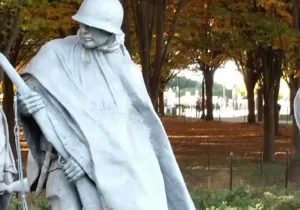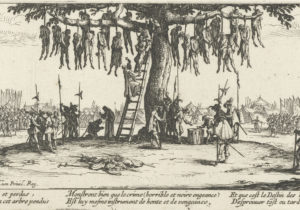The current discussion of “nationalism” seems to be mostly a battle of words and caricatures that bears little on the actual reality or lives of regular people. Talking about, debating, and criticizing various views about the proper place of love for nation and patriotism is a worthy enterprise to undertake. But so much of the current discussion seems rooted in bluster and politics rather than real substantial issues.
Here’s the reality: most people who are the so-called nationalists—I’m not talking about thought leaders who hold big conferences but actual people—are just ordinary Americans who love America, love the flag, are worried about the direction of the country, and voted for Donald Trump because, well, he was running against Hilary Clinton. I mean, come on, Hilary Clinton!! Our talking heads and pundits will obsess over these issues, pouring over data, reading studies, and conclude America is full of racist bigots who voted for a Cretan. I know a lot of Donald Trump voters, and most of them are none of those things.
I like discussing and debating ideas. I think ideas matter a lot, but what I’ve learned over the past five years is that ideas don’t matter as much as I thought. Most people voting for people in political office do not do so on the basis of carefully considered viewpoints. As Samuel Goldman points out in the New York Times, most people in America’s founding era had not read Livy or John Locke. But they had read the Bible, and biblical ideas were more powerful in shaping the founding than ancient Roman historians or seventeenth-century English political philosophers.
Sometimes academics overthink things. I’m not saying there is no merit to the belief that many Christians think America is a Christian nation or want it to be so. Of course that’s true. I’ve lived in almost every region of our fair land, and I have met Christian nationalists of various sorts. Most of these brothers and sisters are just plain old citizens who work hard, pay their taxes, and want their country to embody the values of their faith. Is that so sinister? No, it’s not. It’s pretty normal. They are nowhere near the demonic caricatures that are painted of them in the media and the intellectual class.
The idea that nationalism, or politics in general, works through ideas is just not true. Ideas matter, but just not as much as academics like myself would like them to matter. More often than not, situations on the ground change, the ground shifts, and we see this only after the shift has occurred. As Hegel said, the owl of Minerva flies at dawn.
I staked my hopes on Marco Rubio. I went to a Marco Rubio fundraiser, something I will never do again (not supporting Rubio, but going to a fundraiser). Marco had everything going for him. It was Marco’s year, and I really believed he would ride to glory. It was not so. Instead, we got the anti-Rubio, Donald Trump. To say I was excited about Trump would be a lie. I was ready to vote for Ted Cruz, a politician I deeply, deeply dislike.
Watching Trump come down the escalator and then go on his crazy carnival-tour of America was entertaining but also insane. No way was this guy going to become our president!
But here’s the thing: whatever I thought was happening was not happening. It turned out to be the opposite. And however we make sense of this moment, our debates about nationalism vs. internationalism vs. progressivism are actually quite beside the point. The Republican electorate, and the American electorate, chose someone whom none of the intellectual class would have chosen and universally despised.
We are not in Weimar Germany circa 1932. To even suggest this is insane and deeply unserious. The nationalist wave sweeping across many democracies in our world should give us pause and cause a moment of reflection. What is going on? The knee-jerk academic reaction is surely wrong. Just like the confident and smug predictions of Donald Trump’s demise were wrong, so is the current dismissal of nationalist waves crashing throughout our world.







 Sponsor a student for Christianity & National Security 2024
Sponsor a student for Christianity & National Security 2024